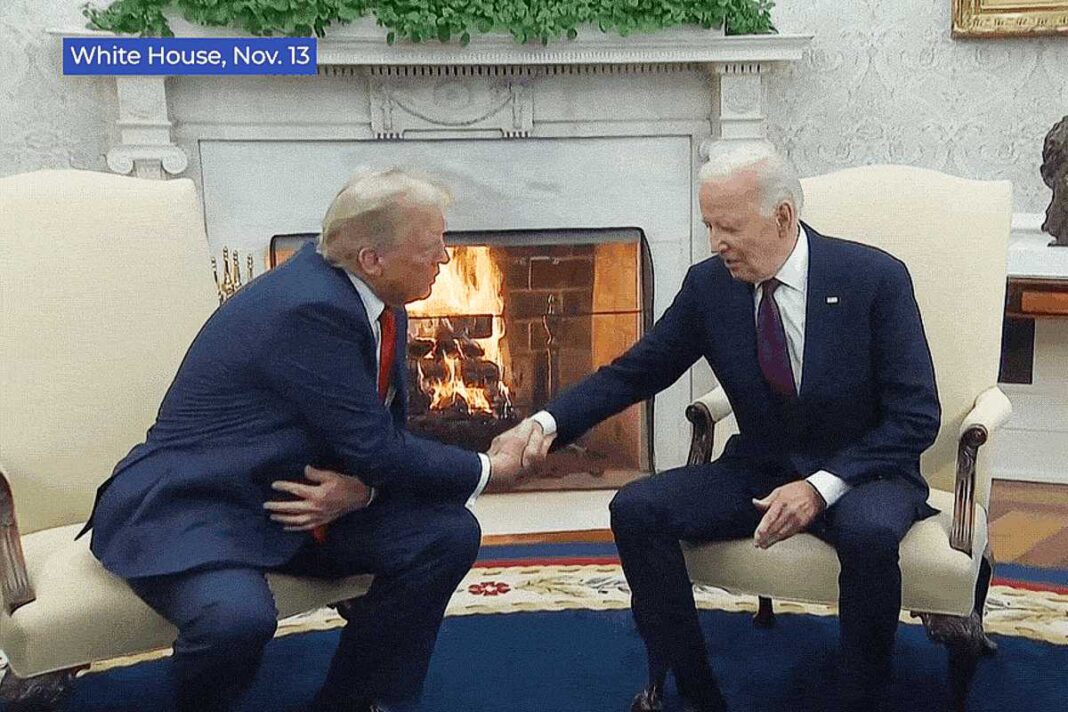
The South Dakota lawmaker pledges to push President-elect Donald Trump’s Cabinet appointments and legislative proposals.
WASHINGTON—Senate Republicans on Wednesday selected Sen. John Thune of South Dakota as their new leader in the 119th Congress, succeeding Sen. Mitch McConnell of Kentucky, who held the post for nearly two decades.
Thune was elected after two rounds of secret ballot voting in a 29–24 vote against contender Sen. John Cornyn (R-Texas.), according to a source familiar with the final ballot count.
The third contender, Sen. Rick Scott (R-Fla.), was knocked out after the first ballot.
Republicans will hold a 53–47 majority in the upper chamber of the new Congress that was elected Nov. 5 along with President-elect Donald Trump and Vice President-elect JD Vance.
As vice president, Vance, 40, will serve as the Senate’s presiding officer—the third youngest man ever to hold the post.
Cornyn will be seeking his fifth term if he runs for reelection in 2026. Concerns about Cornyn having to campaign for reelection while trying to manage the Senate may have hobbled his bid for Senate majority leader.
McConnell, the outgoing GOP leader, had turned the position into a highly centralized operation that tightly controls the Senate schedule and committee appointments for the majority party and determines the allocation of millions in campaign donations to incumbents and challengers.
Scott had vowed to change the GOP conference’s rules to limit the majority leader to one six-year term, and to open up the legislative process to enable wider discussion and more amendments. He received 11 votes in an unsuccessful challenge to McConnell in 2022.
Scott was also haunted by his chairmanship of the National Republican Senatorial Committee during the 2022 cycle. The GOP lost a Senate seat in a year that was widely expected to produce a “red wave” that would have swept the party back into control of Congress.
In addition, both Thune and Cornyn, by virtue of their seniority, have raised hundreds of millions of dollars in campaign contributions for colleagues, many of whom are still in the Senate. In the insular and highly collegial chamber that is the Senate, such favors linger long in influence on friendships among colleagues.






